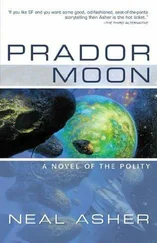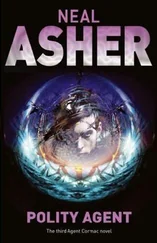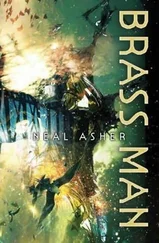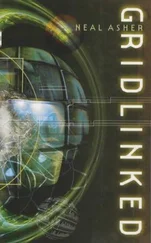Neal Asher - The Departure
Здесь есть возможность читать онлайн «Neal Asher - The Departure» весь текст электронной книги совершенно бесплатно (целиком полную версию без сокращений). В некоторых случаях можно слушать аудио, скачать через торрент в формате fb2 и присутствует краткое содержание. Жанр: Старинная литература, на английском языке. Описание произведения, (предисловие) а так же отзывы посетителей доступны на портале библиотеки ЛибКат.
- Название:The Departure
- Автор:
- Жанр:
- Год:неизвестен
- ISBN:нет данных
- Рейтинг книги:4 / 5. Голосов: 1
-
Избранное:Добавить в избранное
- Отзывы:
-
Ваша оценка:
- 80
- 1
- 2
- 3
- 4
- 5
The Departure: краткое содержание, описание и аннотация
Предлагаем к чтению аннотацию, описание, краткое содержание или предисловие (зависит от того, что написал сам автор книги «The Departure»). Если вы не нашли необходимую информацию о книге — напишите в комментариях, мы постараемся отыскать её.
The Departure — читать онлайн бесплатно полную книгу (весь текст) целиком
Ниже представлен текст книги, разбитый по страницам. Система сохранения места последней прочитанной страницы, позволяет с удобством читать онлайн бесплатно книгу «The Departure», без необходимости каждый раз заново искать на чём Вы остановились. Поставьте закладку, и сможете в любой момент перейти на страницу, на которой закончили чтение.
Интервал:
Закладка:
Though certainly not self-sufficient, Saul knew that the system here had worked well enough when the tenements were first built, but as the population continued to rise and what were once single-family apartments absorbed a load of two or three families each, the cracks soon developed. Many of these areas were now considered no-go for the Inspectorate, and even the block political officers were powerless in districts where someone could be killed just for a bag of onions.
After passing the last tenement, the cab drove out again through a gated fence, similar to the one they’d driven in by, though this time it was complete. Readerguns were positioned on either side, and probably unnecessary Inspectorate guards sat in a lit-up guard booth. The gun barrels immediately tracked the vehicle’s progress, a laser doubtless scanning the bar code on the car’s screen, whilst a radio pulse also elicited responses from both his own and the driver’s ID implants. Saul noted how buildings had been demolished to make way for the fence, and to clear a space about twenty metres wide on either side of it. To the left, as the cab entered a more salubrious neighbourhood, he noted a minibus tipped over on its side, its bodywork peppered with holes and blackened by fire. It looked to him like those who had been trying to escape from the sectored area behind might still be inside. Just beyond this point, the driver breathed a sigh of relief.
‘Not your usual route?’ Saul suggested.
‘I normally take the M25C, through the Chelmsford arcoplex, sir,’ he explained. ‘But this is the quickest route to IHQ – though I won’t be coming back this way.’
‘Why not?’
‘Readerguns ain’t reliable.’
‘Why did you choose this route this time, then?’ he asked.
The driver remained silent for a moment, perhaps remembering who his passenger worked for and frightened lest his comments might be taken as some sort of criticism of the authorities Saul represented.
‘No readerguns here last time.’ He hunched his shoulders, clearly not wanting to say any more, but finally impelled to continue, ‘Weren’t no fence neither.’
So sectoring was well and truly under way, and no one wanted to be on the wrong side of the fence when all the gaps were finally sealed.
Saul had studied Argus Station for a year before information about the place became increasingly difficult to obtain. With Janus’s help, during that year, he managed to gain access to hidden files and secret information. He learnt that the station’s population then stood at just over a thousand, and it was a damned sight closer to self-sufficiency than any GUL developments or the green villages of the early twenty-first century. However, right from the start that self-sufficiency had been difficult to assess, what with the frequent changes in staff, space planes running up supplies or bringing down to Earth the loads of bubblemetal rendered out of the station’s asteroid, along with numerous other products that could only be manufactured in zero gravity. It wasn’t a closed system, therefore, and this applied particularly to its nascent ecology.
The station’s rotational arboretum helped keep the air supply oxygenated, and its trees supplied a multiplicity of other products: wood, fibre, resin, fruits and, from just two of the trees, also natural rubber. Both rotational and low-grav hydroponics provided cereal crops, vegetables, soya beans, cooking oils and sugars, whilst the farm provided oddly shaped eggs, the flesh of chickens, farmed salmon and tank-grown artificial proteins that could be flavoured and textured to resemble the meat of just about any animal.
But to maintain this the horticulturalists of Argus were frequently supplied with seeds, eggs, stasis-preserved life and genetic material from Earth – Gene Bank providing that material, which on the station they implanted in gel-eggs to grow in artificial wombs, or multiplied into seed germs. These produced extinct strains of chickens, rare mushrooms, cereal crops untouched by genetic modification, worms to work the soil, and odd parasites to kill off some pest inadvertently brought aboard the station. Only by constantly monitoring and constantly tweaking things had they managed to keep this makeshift ecology running. Separated from a regular supply of the stuff of life, it would fall apart and everything there would die. But perhaps they had solved that problem now, for in the last year traffic to and from the station had ramped up, and every day vast loads of materials and equipment were disappearing into it.
Only later did Saul learn that Gene Bank itself was about to be closed down, its information and resources relocated. The hatchet man for this task, an Exec called Coran, was unknown at IHQ London outside of the Inspectorate database, and therefore working outside the heavy security that usually surrounded such people. Much easier to get to.
‘Anything on Coran yet?’
‘Nothing at all,’ Janus replied. ‘All they know is that an aerocar went down over the Channel, but they haven’t even started to look for it. They have no ID on the car either, since apparently there was some problem with Air Traffic Control registering it.’
‘Your work?’
‘No, just inefficiencies in the system – the same kind of inefficiencies that allow me to exist.’
Saul nodded to himself and then studied his surroundings. On the side of the street behind him were numerous well-lit suburban houses dating back to the twentieth century. They all looked in good repair, with neatly trimmed front lawns, cars parked in some of the drives, and a surprising lack of security cams or lights, but, to the cabby’s obvious disgust, to get to this street it had been necessary to pass through another guard post watched over by readerguns and enforcers. This place was not one of those being sectored, however, but a gated community reserved for government employees, and the place lying behind the combined ceramic-link and razormesh double fence in front of him was where most of them were employed.
Cell Complex A consisted of numerous long, low, flat-roofed buildings regimentally positioned one after another, hundreds of them, with the ten-storey blocks of the main Inspectorate HQ lying in the distance beyond. Perhaps it was his recent brief conversation with that bitch aboard the rotobus that inclined him to decide this place resembled Auschwitz-Birkenau. Clutching his briefcase he headed over to the gate.
This particular entrance provided a pedestrian access for those staff living in the houses behind him. On one side of a mesh entrance tunnel sat a guard booth with readerguns perched on its roof. Readerguns were also positioned on poles along the inner fence, spaced a few hundred metres apart. The only security at the gate into the tunnel was a reader signal directed to the implant embedded in his arm, which resulted in the gate automatically swinging open. The real security lay at the far end of the tunnel, the set-up here being that if anyone tried entering here who shouldn’t, they wouldn’t be getting out again. As he paced along the tunnel, he glanced over to one side, noting guard dogs patrolling between the two fences. They were big bastard mastiffs with honed-steel spur implants running up the back of their forelegs, cropped tails and ears, and – so Janus informed him – a genetic tweak enabling them to carry as much lethal bacteria inside their mouths as Komodo dragons.
The guards in the booth, clad in the light blue uniforms of Inspectorate enforcers, observed him walking through, and one of them, after checking a screen before him, abruptly stood up and headed for the booth exit. Either Saul had been rumbled or they were reacting to the fact that an Inspectorate Assessor of his standing was now entering through what was effectively the servants’ entrance. Without a doubt they would assume his visit indicated a surprise inspection instituted in Brussels, which usually resulted in someone getting the shitty end of the stick.
Читать дальшеИнтервал:
Закладка:
Похожие книги на «The Departure»
Представляем Вашему вниманию похожие книги на «The Departure» списком для выбора. Мы отобрали схожую по названию и смыслу литературу в надежде предоставить читателям больше вариантов отыскать новые, интересные, ещё непрочитанные произведения.
Обсуждение, отзывы о книге «The Departure» и просто собственные мнения читателей. Оставьте ваши комментарии, напишите, что Вы думаете о произведении, его смысле или главных героях. Укажите что конкретно понравилось, а что нет, и почему Вы так считаете.












